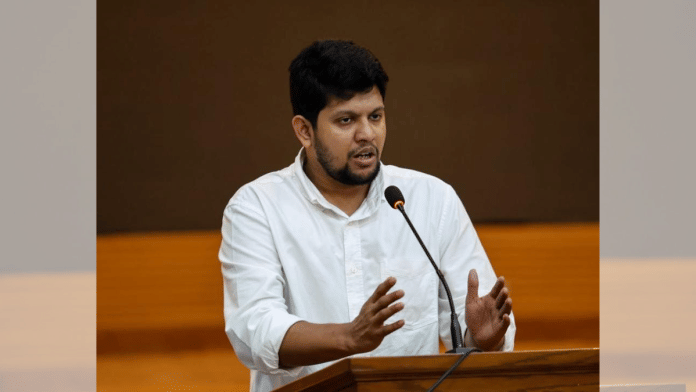New Delhi: Since the ouster of Sheikh Hasina as the Prime Minister of Bangladesh in August last year, a number of sufi shrines in the South Asian country have been attacked, with the latest occurring last week in the North Central city of Mymensingh.
An annual qawwali performance at the Hazrat Shah Sufi Syed Kalu Shah Mazar Sharif in the city was disrupted late Wednesday evening by some madrasa students, according to local media reports. In the early hours of Thursday morning, the madrasa students returned and vandalised the shrine, while also looting cash and valuables.
In the first attack, the students were reported to have attacked the show, ransacked the stage and damaged the sound system. The stage, which was set up adjacent to the shrine, was right opposite the Kotwali police station, reported the Bangladeshi newspaper The Daily Star.
The attack was reported to be the first at the shrine, which has existed for around 149 years, and one female Qawwali artiste amongst several others had to be given first aid. On Saturday, a number of protesters held a rally demonstrating against the attacks on the shrine in Mymensingh, promising more such rallies if the attackers are not brought to justice.
Since August, a number of Sufi shrines, including the Hazrat Shah Paran in Sylhet, Dewanbagh Darbar Sharif in Narayanganj, Yajoora Darbar Sharif in Nangalkot and Rashidiya Darbar Sharif shrine in Kumarkhali, have seen clashes and even attacks. At the Hazrat Shah Paran Mazar Sharif in September, clashes between local residents, madrassa students and teachers and followers left at least 20 people injured in Sylhet, and required the army to intervene to bring control back to the situation.
Mahfuz Alam, an adviser to the head of the Bangladesh interim government Muhammad Yunus, at a press briefing Thursday promised “stern action” against those attacking mazars of Sufi saints and cultural functions.
Alam apologised for not being able to take action earlier against perpetrators attacking Sufi shrines and Qawwali events across the country, following the fall of Hasina’s government, but promised to do better going forward.
“But, from now on, we will take stern measures if attacks are carried out on any mazar of Sufi saints and cultural functions. We will not spare anybody in this regard. We are committed to taking strong measures,” Alam was quoted as saying by the state-run news agency Bangladesh Sangbad Sangstha (BSS).
The adviser promised stern action against the attackers of the Sufi shrine in Mymensingh city.
Local media reports indicate that at least 40 such shrines faced attacks in the immediate aftermath of Hasina’s ouster.
The former prime minister fled Bangladesh on 5 August, 2024, following two months of protests led by students against the quotas for families of veterans from the 1971 Liberation War in public sector jobs, which were reinstituted by the courts in June 2024. Hasina remains in New Delhi, as exclusively reported by ThePrint. Dhaka has submitted a note verbale, requesting Hasina’s extradition a few weeks ago.
Cops probe attacks against minorities
After labelling news reports of nearly 2,100 attacks against minorities in the aftermath of Sheikh Hasina’s ouster last month as “exaggerated”, the interim Bangladesh government Saturday said that at least 1,400 incidents have been investigated by the police and at least 1,250 had merit. Around 360 odd investigations are still ongoing.
On 20 December, 2024, the chief adviser’s press wing claimed that there were only 138 violent incidents against religious minorities in Bangladesh between January and November 2024, citing reports from an independent human rights organisation Ain O Salish Kendra.
However, in a release Saturday, the press wing announced that the Bangladesh Police investigated a list of 1,769 attacks against minorities prepared by the Bangladesh Hindu Buddhist Christian Unity Council. At least 62 cases have been registered on merits of the investigation so far, and at least 35 culprits have been arrested.
The press wing, however, claims that 1,234 incidents out of 14,15 investigated till date were political in nature and not communal, while only 20 incidents were communal attacks. A stance which Muhammad Yunus has repeated publicly a few times.
Dhaka has blamed India for engaging in propaganda over the number of attacks witnessed by religious minorities in Bangladesh.
(Edited by Tony Rai)
Also Read: Bangladesh is becoming a security threat to India. Yunus govt is stoking anti-India politics






